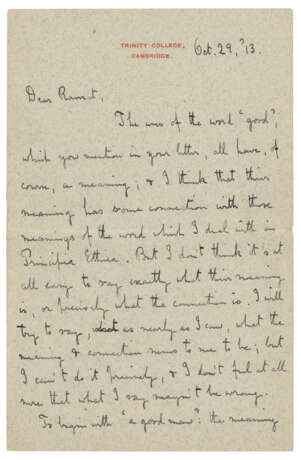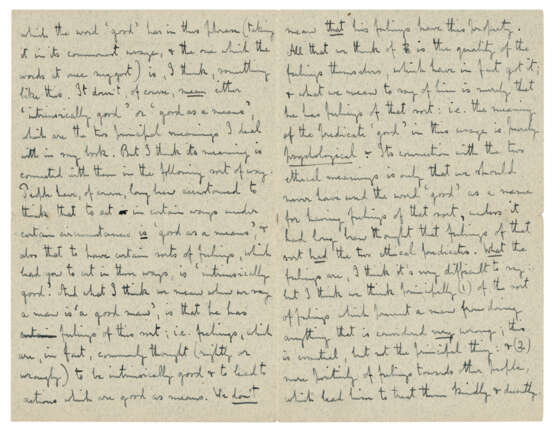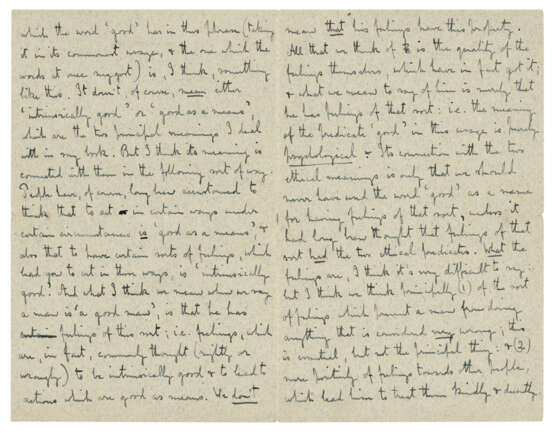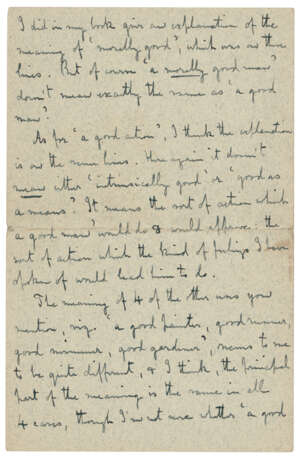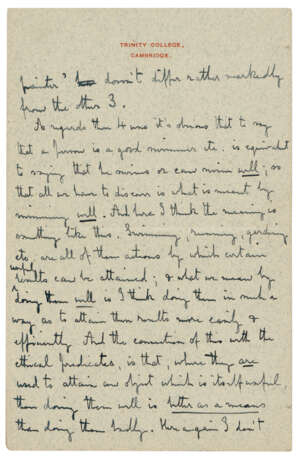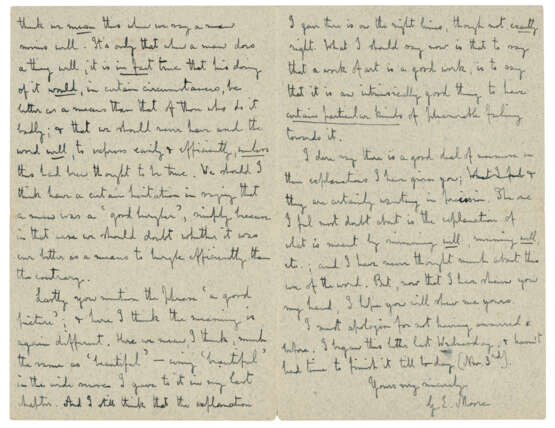ID 1109102
Lot 301 | George Edward Moore (1873-1958)
Estimate value
£ 1 000 – 1 500
Autograph letter signed (‘G. E .Moore’) to Jacques Raverat, Trinity College, Cambridge, 29 October 1913
Seven pages, 175 x 227mm, two bifolia. Provenance: Sotheby's, 29 & 30 June 1982, lot 262.
‘The uses of the word ‘good’, which you mention in your letter, all have, of course, a meaning: & I think that their meaning has some connection with those meanings of the word which I deal with in Principia Ethica. But I don’t think it’s at all easy to say exactly what their meaning is, or precisely what the connection is. I will try to say, as nearly as I can, what the meaning & connection seems to me to be: but I can’t do it precisely, & I don’t feel at all sure that what I say mayn’t be wrong’. ‘To begin with "a good man": the meaning which the word "good" has in this phrase (taking it in its commonest usage, & the one which the words at once suggest) is, I think, something like this. It doesn’t of course, mean either "intrinsically good" or "good as a means". But I think its meaning is connected with them in the following sort of way. People have, of course, long been accustomed to think that to act in certain ways under certain circumstances is "good as a means", & also that to have certain sorts of feelings, which had you to act in those ways, is "intrinsically good". And what I think we mean when we say a man is "a good man", is that he has feelings of this sort; i.e. feelings, which are, in fact, commonly thought (rightly or wrongly) to be intrinsically good & to lead to actions which are good as means. We don’t mean that his feelings have this property [...] swimming, running, gardening etc. are all of them actions by which certain useful results can be attained; & what we mean by doing them well is I think doing them in much a way as to attain these results more easily & efficiently. And the connection of this with the ethical predicates, is that, where they are used to attain an object which is itself useful, then doing them well is better as a means than doing them badly’.
The concept of 'good' was dealt with frequently by Moore, most notably in his Principia Ethica, published in 1903. Jacques Raverat, a French painter, maintained correspondence with a number of writers and philosophers, including Moore and Virginia Woolf.
| Address of auction |
CHRISTIE'S 8 King Street, St. James's SW1Y 6QT London United Kingdom | |||||
|---|---|---|---|---|---|---|
| Preview |
| |||||
| Phone | +44 (0)20 7839 9060 | |||||
| Buyer Premium | see on Website | |||||
| Conditions of purchase | Conditions of purchase |
